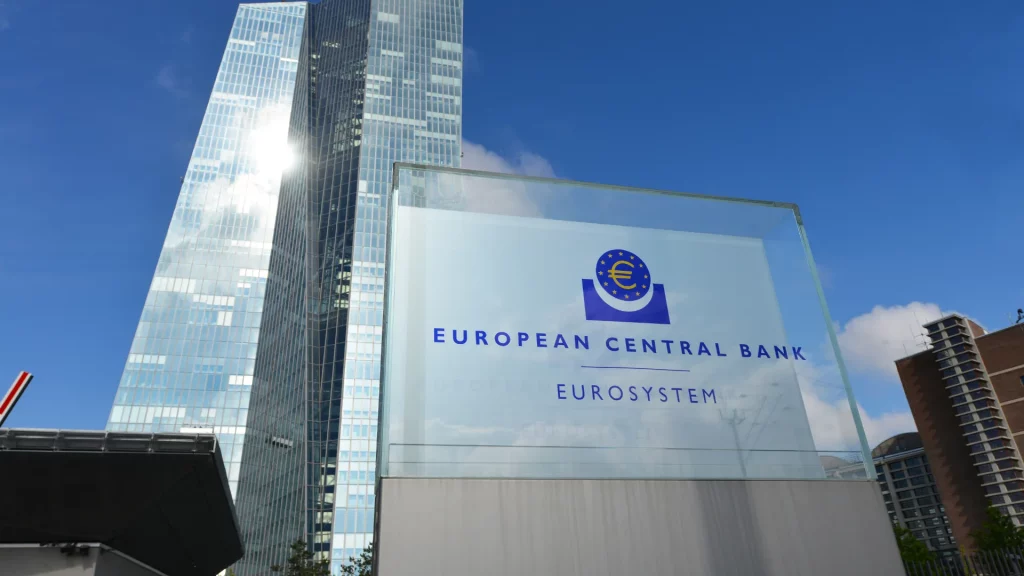The European Central Bank (ECB) mentioned that the governing council has ruled that the present levels of the bank’s interest rates are at a good enough level that be maintained for a longer duration
European Central Bank has increased the interest rates for the 10th consecutive time, sending them to a two-decade record high. The bank has hiked the rates up to 4% from 3.75%, citing inflationary concerns. This latest rate hike came after a forecast on inflation was made – it is anticipated that inflation would be near an average of 5.6% throughout this year.
Christine Lagarde, President of the central bank, said that the inflation is on a downward slope, but forecasts suggest that it will sustain on higher grounds for a longer tenure. She said that drafters of policy have increased rates to push forward growth in the dreadful times of skyrocketed inflation.
The European Central Bank (ECB) mentioned that the governing council has ruled that the present levels of the bank’s interest rates are at a good enough level that be maintained for a longer duration. This will aid in accomplishing the return of inflation to the suggested target.
The bank has set up an aim for inflation to fall to 2.9% the following year and further down to 2.2% in 2025. The 20-nation bloc called the eurozone has been significantly crumbled by the increasing food and fuel prices.
The bank’s decision was accepted with the bit of uncertainty they themselves had about increasing or maintaining the rates because officials compared decreasing inflation against their will to announce triumph in the early phases. Market participants were putting their money in the bank, increasing rates slightly rather than just maintaining them.
The thesis given by the banks for hiking rates is that by increasing the cost of borrowing, they will reduce the supply of money in the market. This will reduce the purchasing power of consumers, who now have less money to spend, ultimately leading to lowered sales and a decrease in prices. Rates need to be increased in a very balanced manner; otherwise, haphazardly increasing rates could lead to a recession.
The Federal Reserve and Bank of England will decide upon their interest states next week. They are expected to maintain the rates, but there is anticipation that a recent increase in inflation in the United States could trigger discussions for raising rates later this year.
Britain officials will receive the new inflation data before the policy meeting, which has the potential to change their decisions. Investors are betting that the bank has a higher chance of raising rates.
This might be the 15th time the bank would have hiked rates consecutively.
The European Central Bank has had the most aggressive period of quantitative tightening since the previous year. They began increasing rates in July last year and have pulled rates from negatives to decadal highs. Since that time, inflation in the eurozone has drastically fallen from double digits.
This year, prices of consumer goods defeated the economist’s forecasts for a meltdown in prices and surged 5.3% in the month of August in comparison to a similar period in the previous year. The main cited reason for this is the sudden increase in fuel prices.
The ECB has a target to bring down inflation to 2% in a phased manner. They have announced their plans to sustain higher rates for a longer duration to meet their targeted inflation till 2025. They have started witnessing lower demands for business, personal loans, and mortgages and have advised banks to further squeeze their hands in matters of fresh lending.
The European Commission has reduced its economic forecast for the region. They have projected that the region would grow by a meagre 0.8% this year. This forecast has been brought down from 1.1%, which was just a few months ago. Further, the economy is anticipated to grow even slower in the following, and some critics even suggest negative growth in the future for a short while.
